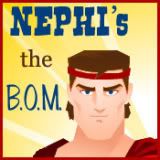But what are its "magical properties?
For years researchers have studied why and how music has such an enormous effect on people. Music has been found to boost athletic performance; soothe and heal injuries; help depression, autism, and Alzheimer's; and increase academic performance. It seems there is something more to those tunes that get our toes tapping and our fingers snapping.

But what really causes an increase in your child's academic performance is music education. Studies repeatedly show that learning to play and read music correlates with positive results in learning capabilities.
Think about it – getting an 89 percent on an essay is a pretty good grade. However, if your child plays 89 percent of the notes correctly in the end of the year concert, neither your child, the band teacher, or the other fifty kids in the band are going to be pleased with his or her performance. The unique discipline that comes from learning and performing music helps children in many areas of their lives.
In one study, two elementary schools were compared – one in which children studied piano formally for three consecutive years and one that required no formal musical training. Students from the "music-learning" school had significantly better vocabulary and verbal sequencing than the other group. Another study in Switzerland tested 1,200 children in 50 schools for various effects of music education, and found that children actively involved in music learned to read more quickly and acquired other languages more readily. These children also had lower stress levels and demonstrated more enjoyment in school then those not involved with music.
Using music in the classroom to teach math and reading is a new concept, but one that has proven to be very effective. Gregory Stevens, an algebra teacher from Elk Grove, California, has been using music in his classroom for several years now. To teach his students the quadratic formula, he has them sing the words of the formula to the chorus of "Jingle Bells." Because of this exercise, every one of his students is able to memorize this complicated formula.
Starlene Hansen, a student of his in 2000, says she still remembers the song (and, consequently, the formula), ten years later: "[The song] made an unfamiliar concept with an incredibly foreboding name into a simple and fun song." Hansen continues, "Mr. Stevens also used the 'Tomorrow' song from Annie and had us sing it the day before a major assignment was due, to increase our awareness and eliminate the excuse of not knowing when something was due." Hansen feels that singing made the mundane task of remembering due dates fun and created unique accountability.
Music can make a huge difference in lives. Anyone who has listened to an inspired choir in a church meeting knows the effect that their simple harmonies have on people. Somehow music is able to connect with parts of us that speaking just can't reach. While research continues to be done, the whys behind the power of music have yet to be discovered. For now, the reason these joyful strains have such an effect on us will remain an amazing and wondrous mystery.










1 comment:
I'm LOVING these articles on music, Lyn!!! I firmly believe ALL of it -- and always have. I love having the class sing "Tomorrow" before the big test day! Haha! Fantastic.
Post a Comment